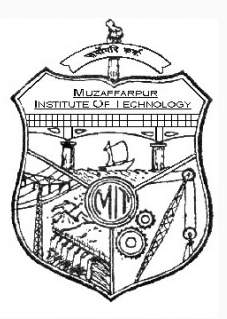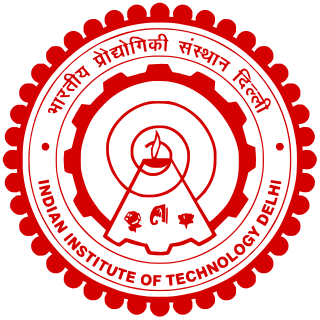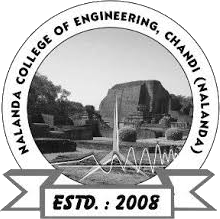
Indian Institute of Technology Kanpur is a public institute of technology located in Kanpur, Uttar Pradesh, India. It was declared to be an Institute of National Importance by the Government of India under the Institutes of Technology Act.

The Indian Institute of Technology Bombay is a public research university and technical institute in Powai, Mumbai, Maharashtra, India.

Indian Institute of Technology Kharagpur is a public institute of technology established by the Government of India in Kharagpur, West Bengal, India. Established in 1951, the institute is the first of the IITs to be established and is recognised as an Institute of National Importance. In 2019 it was awarded the status of Institute of Eminence by the Government of India.

Indian Institute of Technology Roorkee is a technical university located in Roorkee, Uttarakhand, India. It is the oldest engineering institution in India, and was founded as the College of Civil Engineering in British India in 1847 by the Lieutenant-Governor of the North-Western Provinces, James Thomason, in order to train officers and surveyors employed in the construction of the Ganges Canal. In 1854, after the completion of the canal and Thomason's death, it was renamed the Thomason College of Civil Engineering by Proby Cautley, the designer and projector of the canal. It was renamed University of Roorkee in 1949, and again renamed IIT Roorkee in 2001. The institution has 22 academic departments covering Engineering, Applied Sciences, Humanities & Social Sciences and Management programs with an emphasis on scientific and technological education and research.

Joint Entrance Examination – Advanced (JEE-Advanced), is an academic examination held annually in India. It is organised by one of the seven zonal IITs under the guidance of the Joint Admission Board (JAB) on a round-robin rotation pattern for the qualifying candidates of the JEE-Main. It was used to be the sole prerequisite for admission to the Indian Institutes of Technology bachelor's programs before the introduction of UCEED, Online B.S. and Olympiad entries, but seats through these new mediums are very low.
Joint Entrance Examination – Main (JEE-Main), formerly All India Engineering Entrance Examination (AIEEE), is an Indian standardised computer-based test for admission to various technical undergraduate programs in engineering, architecture, and planning across colleges in India. The exam is conducted by the National Testing Agency for admission to B.Tech, B.Arch, etc. programs in premier technical institutes such as the National Institutes of Technology (NIT) and Indian Institutes of Information Technology (IIIT), which are based on the rank secured in the JEE-Main. It is usually conducted twice every year. Since 2019, the JEE has been conducted fully online as a computerised test.
The Joint Entrance Examination (JEE) is an engineering entrance assessment conducted for admission to various engineering colleges in India. It is constituted by two different examinations: the JEE-Main and the JEE-Advanced.

Abhayanand is an IPS officer and educationalist who, along with Anand Kumar, conceptualised Super 30 to teach poor students to crack IIT JEE. Following his graduation from Patna Science College, Abhayanand was selected as the IPS officer for the Bihar cadre after clearing UPSC Civil Services Examination in 1977. He was the ADG (headquarters) in 2006 and as such he concentrated on the speedy trial of Arms Act cases in Bihar. Later, during his tenure as the ADG of Bihar Military Police, Patna, he motivated the constables to donate from their salaries to convert a dilapidated government hospital into a modern nursing home with state-of-the-art facilities for treatment of the police force and their family members. Abhayanand was appointed as D.G.P. Bihar in August 2011, following the footsteps of his late father, Mr. Jagdanand, who was the 28th D.G.P., Bihar in 1985–86.

Anand Kumar is an Indian Mathematics educator best known for his Super 30 programme, which he started in Patna, Bihar in 2002, known for coaching underprivileged students for JEE- Main & JEE-Advanced, the entrance examination for the Indian Institutes of Technology (IITs). By 2018, 422 out of 510 students had made it to the IITs and Discovery Channel showcased his work in a documentary. Kumar has spoken at MIT and Harvard about his programs for students from the underprivileged sections of Indian society. Kumar and his school have been the subject of several smear campaigns, some of which have been carried in Indian media sources. His life and work had been portrayed in the 2019 film, Super 30, where Kumar is played by Hrithik Roshan.

Muzaffarpur Institute of Technology is a public, coeducational engineering college in Muzaffarpur, Bihar, India. It is administered by the Department of Science and Technology, Bihar and funded by Government of Bihar. It was founded in 1954, just after India attained independence in 1947. The foundation stone was laid by the first Prime Minister of India, Jawaharlal Nehru. It runs undergraduate and postgraduate programmes in Engineering.

Super 30 is an Indian educational program started in Patna, India under the banner of Ramanujan School of Mathematics. It was founded by Anand Kumar, a mathematics teacher, and Abhayanand, the former D.G.P of Bihar. The program selects 30 talented candidates each year from economically underprivileged sections of Indian society and trains them for the JEE. The program is portrayed in the 2019 film, Super 30, starring Hrithik Roshan as Anand Kumar, and his school, have been the subject of several smear campaigns, some of which have been carried in Indian media sources.

IIT Delhi, officially Indian Institute of Technology Delhi, is a public institute of technology located in New Delhi, India. It is one of the 23 Indian Institutes of Technology created to be Centres of Excellence for India's training, research and development in science, engineering and technology.
Previously a neglected aspect of the Indian Central government, Education in Odisha is witnessing a rapid transformation. Its capital city, Bhubaneswar, is emerging as a knowledge hub in India with several new public and private universities, including the establishment of an Indian Institute of Technology after five decades of demand.
Bihar has been a major centre of learning and home to one of the oldest universities of India dating back to the fifth century and the tradition of learning which had its origin from ancient times was lost during the medieval period when it is believed that marauding armies of the invaders destroyed these centres of learning.

The School of Medical Science and Technology (SMST) is an educational and research institute affiliated to the Indian Institute of Technology, Kharagpur, India. Founded in 2001, the School of Medical Science and Technology brings together doctors, scientists and engineers to work collaboratively on projects for better healthcare.
The Indian Institutes of Technology (IITs) are prestigious central government owned public technical institutes located across India. Known for their excellence in education, they are under the ownership of the Ministry of Education of the Government of India. They are governed by the Institutes of Technology Act, 1961, declaring them as Institutes of National Importance and laying down their powers, duties, and framework for governance as the country's premier institutions in the field of technology. The act currently lists twenty-three IITs. Each IIT has autonomy and is linked to others through a common council called the IIT Council, which oversees their administration. The Minister of Education of India is the ex officio Chairperson of the IIT Council.

Indian Institute of Technology, Hyderabad is a public technical research university located in Sangareddy district in the Indian state of Telangana. As with all Indian Institutes of Technology (IITs), IIT Hyderabad is an Institute of National Importance.

Nalanda College of Engineering (NCE) is a government engineering college situated at Chandi town, near Nalanda city in Bihar state of India. It was inaugurated on 19th November 2008 by the chief minister of Bihar, Nitish Kumar. It is affiliated to Aryabhatta Knowledge University. The college is managed by Department of Science and Technology, Bihar.
Two major engineering entrance examinations are used for admission to engineering institutes across India, Indian Institute of Technology Joint Entrance Examination (IIT-JEE) and All India Engineering Entrance Examination (AIEEE). In 2010, a proposal for a common engineering entrance examination was made by the Ministry of Human Resource Development. The proposal has gone through several names and formats, and is expected to enter use in 2024. Yet, the common entrance exam for all engineering courses in India has not become effective, even for academic year 2021–22.
India has the largest numbers of engineers as well as the largest number of engineering education institutes and infrastructure in the world. As of 2021, India annually produces fifteen lakh engineering graduates. India's technical education infrastructure includes 2500 engineering colleges, 1400 polytechnics and 200 schools of planning and architecture.













